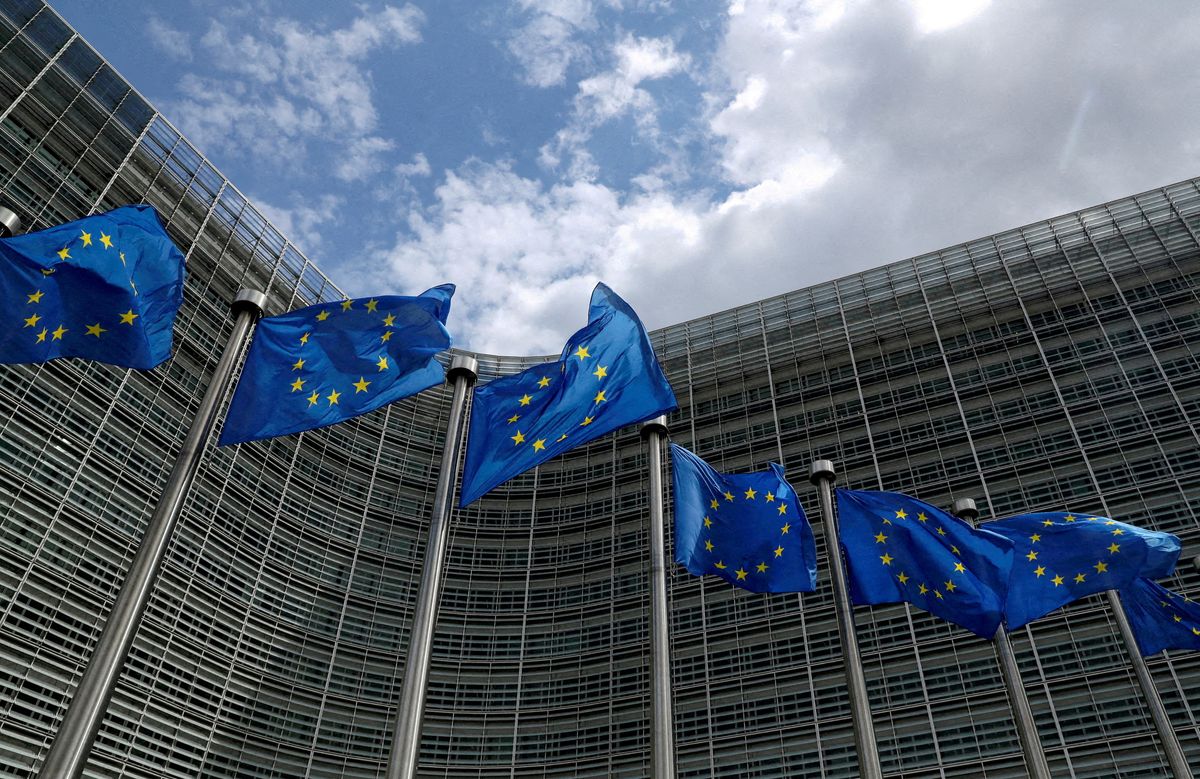The European Commission's proposal to loosen GMO regulations
The EU has been actively advocating for changes to the regulations governing genetically modified plants.

A few minutes every morning is all you need.
Stay up to date on the world's Headlines and Human Stories. It's fun, it's factual, it's fluff-free.
The backstory: Genetically modified organisms (GMOs) are organisms, like plants and animals, that undergo changes to their genomes using advanced scientific techniques, with the aim of improving or introducing new traits. But there’s been some controversy about the safety of GMOs, especially when those techniques are used to change foods and crops.
To prioritize safety, environmental protection and consumer transparency, the EU has enforced strict rules governing GMOs. But there are different ways to modify genes. In traditional methods, DNA from another organism can be introduced to create genetic changes. But then there are newer versions of genome editing, which involve precisely replacing one sequence of DNA with another chosen one – and these changes are indistinguishable from naturally occurring mutations. This latter method was a bit of a gray area for a while when it came to regulations already on the books.
But in 2018, the European Court of Justice decided that genome-editing techniques, such as CRISPR-Cas9 (which involves cutting DNA strands with molecular "scissors"), should also be subjected to those existing GMO regulations. Prompted by this decision, the European Commission decided in 2021 to review its existing GMO regulations from 2001, realizing that they were a bit outdated and not “fit for purpose.”
More recently: The EU has been actively advocating for changes to the regulations governing genetically modified plants, specifically those made with new genomic techniques (NGTs) like CRISPR, which earned scientists Jennifer Doudna and Emmanuelle Charpentier the 2020 Nobel Prize in Chemistry. Last month, a draft of the proposed GMO legislation was leaked, shedding light on the EU's latest plans.
The development: The European Commission just proposed some changes to its rules on GMOs in Europe. The idea is to relax some restrictions for plants created using newer gene-editing technology.
The EU says this move would bring some benefits like more resilient crops that can better handle challenges like pests and diseases. Plus, it could help reduce the need for chemical pesticides. On top of that, these modified plants could have higher nutritional value so that consumers would get some added health benefits from their food.
Now, here's how the EU plans to categorize these NGT plants. If an NGT plant could also occur naturally or by traditional breeding, it won't be treated as a GMO and won't need to follow GMO regulations or have special labeling. But other NGT plants would fall under the GMO category and have to go through risk assessments and authorization before hitting the market. The categorization is also based on the number of genetic modifications – plants with up to 20 modifications can qualify for the first category, while those with more than 20 modifications would fall into the second category. Also, the second-category plants may be eligible for faster approval if they have traits like climate change resistance or they require fewer resources, like water or fertilizer. The plan still needs the thumbs-up from European Parliament and the EU government, so some details might change along the way.
Key comments:
"Plant breeding normally takes more than a decade from the first positive research results to market entry. Gene editing allows us to cut five years out of this process," said Bayer's head of sustainability, Matthias Berninger.
"Plants produced by new genomic techniques can support sustainability," said Stella Kyriakides, the EU's health commissioner, in April.
"We can be much faster, we can be much more targeted, and with that, we can probably also be cheaper," said Garlich von Essen, secretary general of Euroseeds, to Euronews."So, we will be able to focus our breeding, and we will be able to focus on trade that really matters to farmers and to consumers."
"Some years ago, the highest court in Europe made a ruling and said very clearly that new genomic techniques are GMOs, legally, politically, scientifically, this is all sorted out," said Mute Schimpf from Friends of the Earth Europe to Euronews. "So far, there's very limited research done on how they could impact nature, how they could impact human health and to make it more concrete.




Comments ()